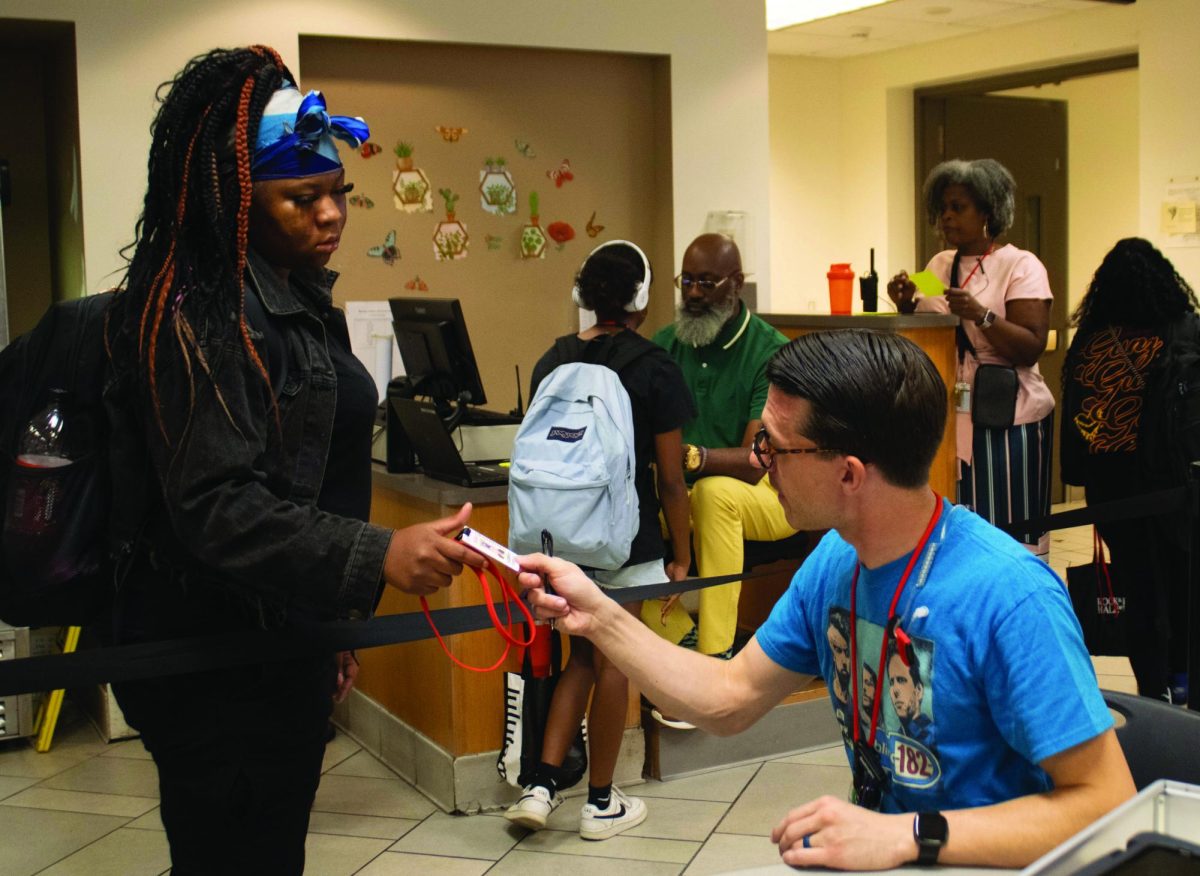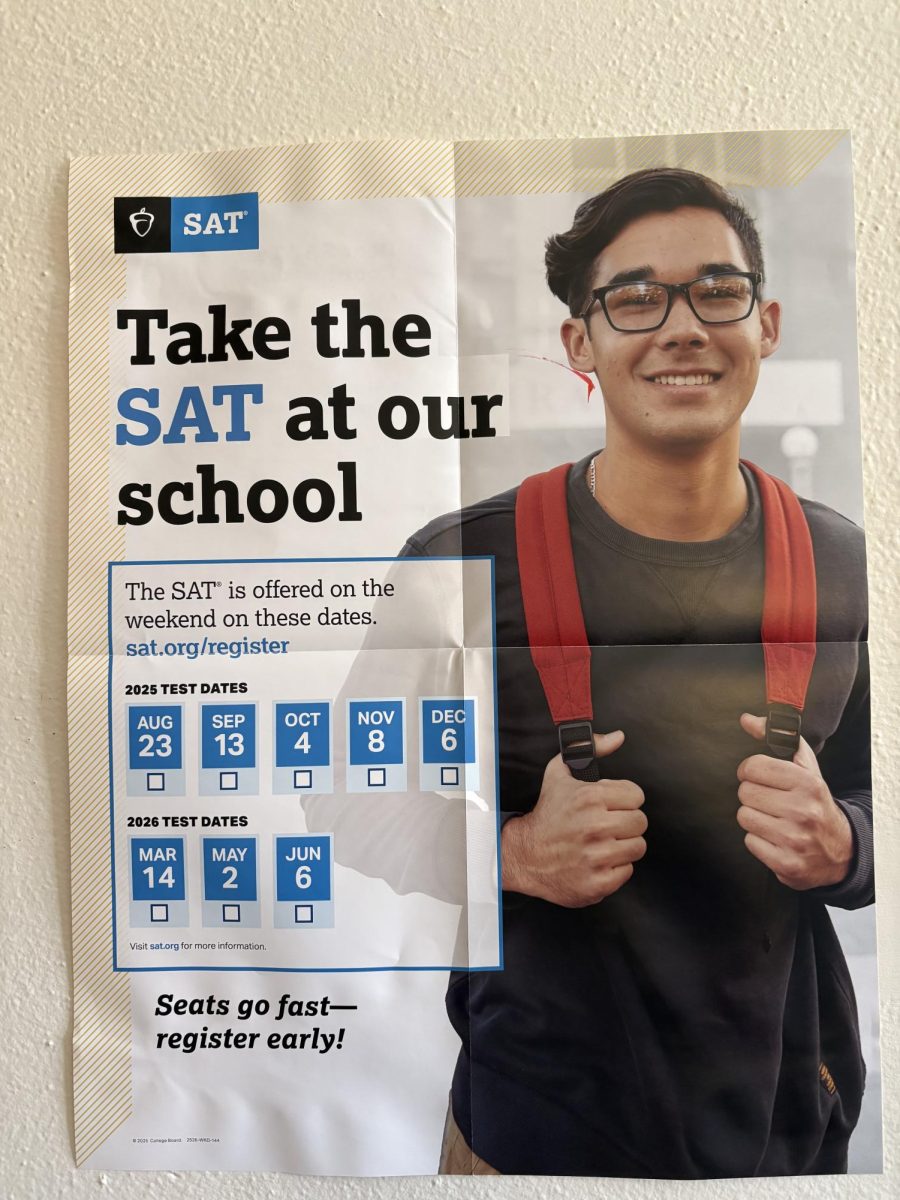The Board of Education’s 2023 decision to add Eid-al Fitr to the list of recognized holidays has prompted some Chinese students, families and staff to ask that Lunar New Year be added as well.
Eid al-Fitr is a three-day holiday marking the end of Ramadan, Islam’s holy month of fasting. It fell on Sunday, March 30 and Monday, March 31 this year. Spring break included March 31 this year in observance of Eid. People who participate in Ramadan break their fast on Eid to commemorate the end of the holy month. Celebrations include at least three prayer services, community meals and charity collections.
The district calendar acknowledged the holiday for the first time this year, bringing the number of observed school cultural holidays to six. Rosh Hashanah, Yom Kippur, Christmas Eve, Christmas Day, Eid al-Fitr and Good Friday will be included in the 2025-2026 district calendar.
Dr. Lawrence Burnley, chief diversity, equity and inclusion officer, said that the decision to add cultural holidays to the district calendar is not based solely on demographics, and that the Islamic population at Shaker is significantly smaller than the Jewish and Christian population. “But because of our commitment to inclusion, equity and diversity, that Muslim voice is heard, regardless of the representation of the demographics in the district,” Burnley said.
“I’ve noticed we celebrate a lot of different cultures’ holidays,” said freshman Evan Wong, “but we seem not to acknowledge as widely the Asian holidays, such as Chinese New Year.”
Lunar New Year, also referred to as Chinese New Year or Spring Festival, is celebrated on the second new moon after winter solstice, which occurs annually on Dec. 21, and falls between Jan. 21 and Feb. 20. For many Asian cultures, the 15-day holiday marks the beginning of the lunar calendar and the arrival of spring. A Lunar New Year’s Eve feast kicks off the holiday and includes symbolic foods, decorations and dances associated with the Chinese Zodiac. Marking more than 3,500 years of Lunar New Year celebrations, 2025 is the Year of the Snake.
Diwali, another primarily Asian holiday that the district hasn’t acknowledged, falls between October and November. While Diwali is a Hindu holiday, people of various religious identities across India celebrate it, including Jains, Sikhs and Buddhists.
Freshman Ro Laughlin said that even though Shaker’s Asian population is relatively low, Lunar New Year should be recognized. “A lot of other cultures and ethnicities are represented,” Laughlin said. When school began in 2024, just over 2 percent of the district’s enrollment was Asian, a number that does not account for multiracial students.
Beachwood City Schools, with a larger Asian student population of 11.8 percent, had the day off for Lunar New Year for the first time in 2024. The district also added Diwali and Eid to its calendar in 2023.
A New York state law, passed in 2023, requires public schools to observe Lunar New Year. No other states require it.
Kay Cohen, parent of a Shaker student, noticed the lack of recognition for Lunar New Year. In December 2024, she emailed Superintendent David Glasner to request that the district suspend classes in honor of the holiday.
Glasner responded that no changes were planned for the 2025-2026 school calendar. “Our Chinese language teacher pointed out that many Chinese individuals celebrate the Lunar New Year on Lunar New Year’s Eve since that is when families typically get together for large meals and also because 11:00 a.m. here is midnight in China,” he wrote. Glasner also noted that in 2026, the Lunar New Year’s Eve will fall on President’s Day, when schools are already closed.
Glasner concluded that the district’s “Chinese faculty also do an excellent job every year of celebrating the Lunar New Year with students across buildings.”
Mandarin teacher Raina Li coordinated the 2025 celebrations. “This year, we had kind of a big celebration at Shaker Heights High School,” Li said. “We had all the students in Chinese class, Asian Studies and IB World History join us to celebrate for a performance.”
The celebration included a dragon dance, a traditional Chinese performance where dancers hold a giant dragon puppet to give the impression of a real dragon. At the last minute, they needed somebody to fill an empty spot in the dragon, so Principal Isaiah Wyatt stepped in. “He was so good and he held the dragon while twirling all over the school,” Li said.
Li said she misses Lunar New Year celebrations with her young sons while she coordinates celebrations for the high school. If Lunar New Year falls on a school day, her family “just doesn’t have a celebration at home.” She said it takes a lot of energy to plan for and put together the celebration for the high school, and she is too tired for more than a simple family meal when she gets home.
In response to Cohen’s email request, Burnley thanked her for inviting the district to consider it “through the lens of inclusive excellence.”
Wong said that adding Lunar New Year to the calendar would encourage other minorities to seek acknowledgment. Wong said, “I think it will push them to also ask for days off on their most important holidays.”
A version of this article appears in print on page 6 of Volume 95, Issue 5, published May 27, 2025.







